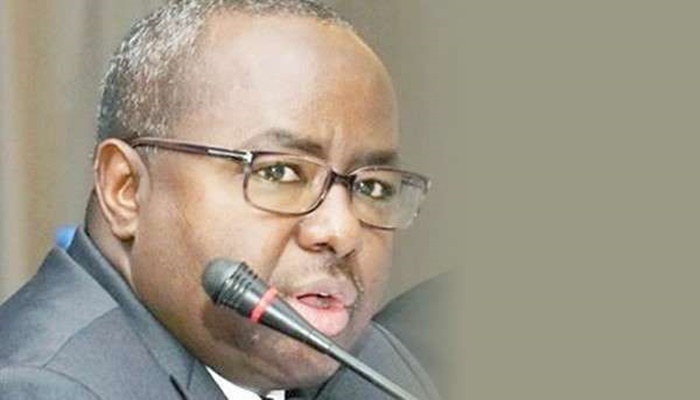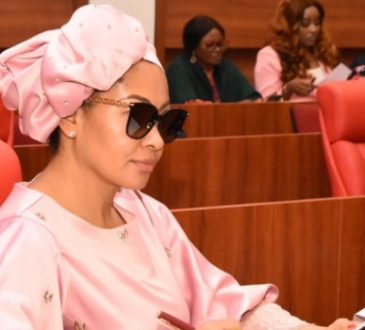
Latest financial market report released by a Lagos based investment banking and research firm, Afrinvest West Africa Limited has predicted that local fund managers such as the banks, Pension Fund Administrators (PFAs,) Insurance & Asset Management companies are expected to dominate investment in the Nigerian fixed income market this year, Niyi Olaoye reports.
In the latest Afrinvest West Africa Limited report “Fixed Income Market Prognoses for 2017′, it reveals that amidst the threatening macroeconomic concerns that are anticipated to shape the direction of the fixed income market in 2017, the protracted forex market conundrum is a major element that makes calling the market a herculean task.
The elevated pressures on inflation and the slip of the economy into recession are both traceable to foreign exchange misalignment and mispricing it stated.
“Consequently, yields movement in 2017 will be largely determined by structural shifts in the foreign exchange market towards unifying the fragmentation and installing a truly flexible market.
“Buy sentiment will possibly continue to favour short dated instruments; most especially the T-bills and Commercial Papers (CPs) as they would likely offer higher yields than the long dated instruments. Our interactions with several foreign investors with interests in Nigeria suggest that a decision to stake any position in the Nigerian market will be a function of currency liquidity and a greater certainty on their ability to repatriate capital anytime they divest.
“As a result, we do not see significant foreign capital flowing into Nigerian equities in the short to medium term as the discrepancy between the parallel and interbank market rates continue to deter interest in Nigeria,” the report read in part.
For the fact that in 2016, creeping inflation kept average yield at high levels as investors factored price pressures into yields, outlook on inflation remains a challenge on the possibility of further pressure on FX rate, risk of higher energy prices on the back of strengthening global oil prices as well as gas price adjustment to higher exchange rate.
Meanwhile, Acting Director of Communications at the apex bank, Mr. Isaac Okorafor said there was no reasonable justification to allow the naira to float in the market given that Nigeria is mainly an import dependent country.
He explained that the current high level of inflation in the economy was mainly imported as a result of naira depreciation and that the situation would escalate further should CBN allow further depreciation.
“What we have in the economy now is managed float,” CBN Governor, Mr Godwin Emefiele had explained during a press briefing shortly after Monetary Policy Committee (MPC) meeting in Abuja, last week.
Banks will also be in trouble as they will no longer be able to cope with servicing the foreign facilities they have already acquired when dollar was cheap.
On the health of banks, the report clearly stated that banks’ assets have depreciated in the last two years, with provisions for Non-Performing Loans (NPLs) hitting N856.9 billion, the financial market report said.
It said provisioning for the NPLs, which rose 3.1 times from N280.4 billion in December 2014 to N856.9 billion last August, trimmed qualifying capital for mid to small-sized banks. The high concentration of forex denominated loans has nominally increased risk weighted assets following pressure on forex rate, it said.
It said the NPL ratio increased from 2.9 per cent in 2014 to 11.7 per cent as of June 2016, with the forecast it could rise to 12.1 per cent as at December 2016.
The pressured portfolios of the banks include upstream oil and gas, general commerce, manufacturing and power sectors, which account for 48.1 per cent of total industry loan book.
The report also said FBN Holdings, Diamond Bank Plc, Heritage Bank Limited, First City Monument Bank Limited, Union Bank of Nigeria Plc, Unity Bank of Nigeria Plc and Skye Bank Plc would either require fresh capital or aggressively capitalise their earnings to stay within prudential limits in the next one year.
The Capital Adequacy Ratio (CAR) for banks that operate in Nigeria alone is 10 per cent, and is 15 per cent for lenders with offshore subsidiaries and 16 per cent for Systematically Important Banks (SIBs).
The report said: “In our estimation, seven banks- FBN Holdings, Diamond Bank of Nigeria Plc, Heritage Bank Limited, Unity Bank Plc, First City Monument Bank Limited, and Skye Bank Plc – would need to raise capital or aggressively capitalize earnings to stay within prudential limits in the next one year.”
According to the report, access to capital market for debt and equity financing remains tight due to the weak macroeconomic backdrop and investor sentiment even as profitability going forward will also be pressured as banks would be required to adopt International Financial Reporting Standards (IFRS) in reporting impairment charges from 2018.
It said the new accounting policy is much stiffer in that it forces early recognition of impairments. “We forecast NPL ratio to stay in double-digit in 2017 as the macro pressures persist whilst the delayed but certain adjustment of the currency in 2017 will further increase provisioning cost,” it said.
However, Fitch recently affirmed Nigeria’s IDR at ‘B+’, fell four steps below investment grade. The Country Ceiling was also affirmed at ‘B+’ while the Short-Term Foreign and Local Currency IDRs were affirmed at’B’. The Outlook downgrade was informed by an assumption that then on oil economy would continue to be constrained by severely restricted access to foreign exchange liquidity until the Central Bank of Nigeria (CBN) can restore the credibility of the Interbank Foreign Exchange Market (IFEM) and bring down the spread between the official rate and the parallel market rates.”
More so, Fitch also highlighted factors that could lead to positive rating action, including: revival of economic growth; reduction of the fiscal deficit and the maintenance of a manageable debt burden; increase in foreign exchange reserves to a level that reduces vulnerability to external shocks; and successful implementation of structural reforms such raising non-oil revenues, increasing the execution of capital expenditures and passage of the Petroleum Industry Bill.
Analysts, however, are concerned about the current energy crises facing the country, especially the failure of power sector to achieve commercial market viability. Also, the inability of government to fully deregulate the downstream Petroleum sector may lead to an energy crisis that could hobble economic recovery,” they said.






